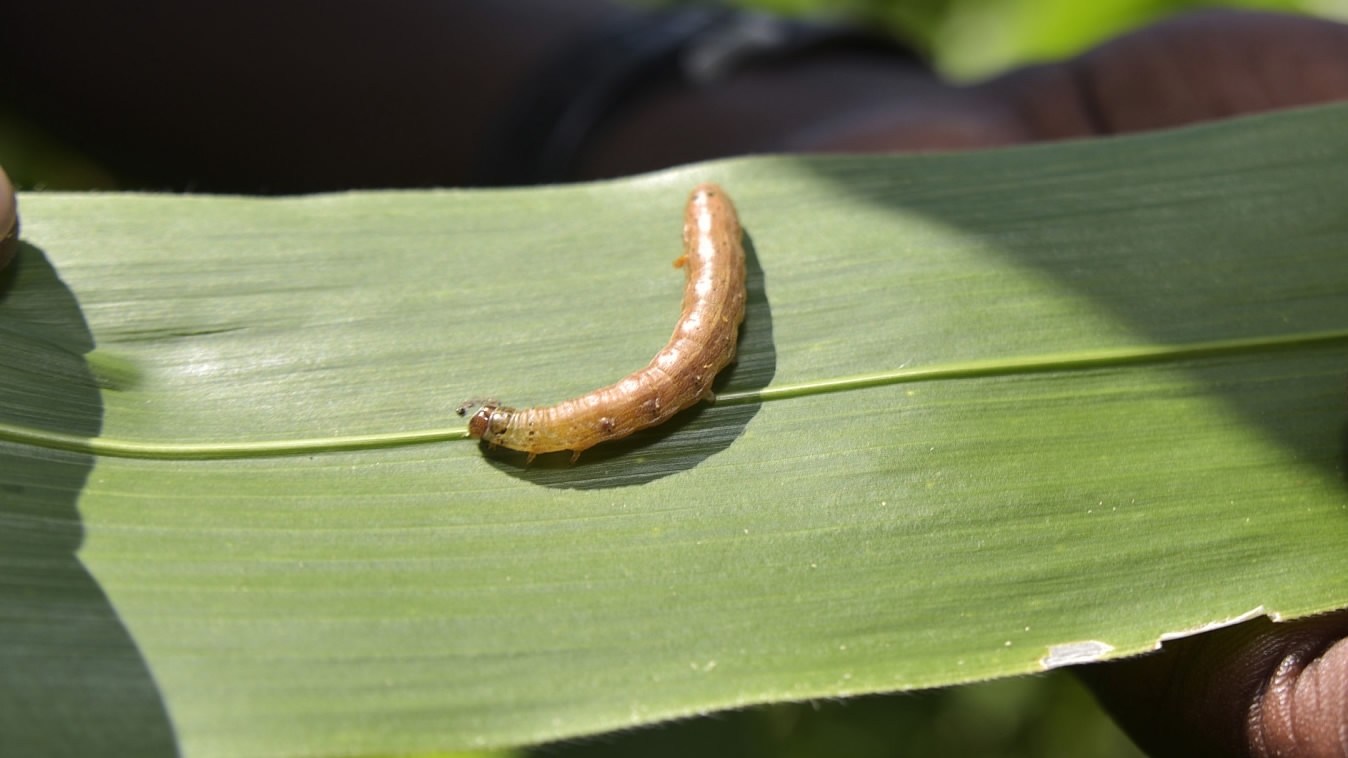
Tech & Sci
12:39, 11-Jul-2017
Cannibalism may stop the spread of disease: study

Cannibalism is believed to be a new way to stop the spread of disease, and it may be an understudied factor in disease control, according to the Louisiana State University (LSU) recently.
Bret Elderd, an associate professor of LSU Department of Biological Sciences, and his colleagues have found that in the fall armyworm system, cannibalism decreases the rate of disease spread. In other systems, there is observational evidence that cannibalism hinders the spread of disease.
"In some species, mothers will cannibalize their young to weed out the sick and weak, ensuring higher survival rates for healthy offspring,” Elderd said, but he admitted that there "hasn’t been a lot of empirical research to back up these observations”.

A large fall armyworm is about to cannibalize a smaller diseased armyworm of the same age. /VCG Photo
A large fall armyworm is about to cannibalize a smaller diseased armyworm of the same age. /VCG Photo
The new study, led by former LSU postdoctoral researcher and current University of California at San Diego (UCSD) postdoctoral researcher Benjamin Van Allen, along with researchers in Elderd's lab and Volker Rudolf's lab at Rice University. It will be published in American Naturalist.
The paper contrasts the human agricultural practice of culling livestock to remove sick individuals and prevent disease spread. It turns out that cannibalism can be far more effective at culling diseased individuals from a population.
"What a disease really wants to do is reproduce,” Elderd explained. "What we show in our paper is that if these caterpillars become cannibalistic and consume smaller, sick individuals in the population, transmission of this virus through the population is reduced.”
(Source: Xinhua)

SITEMAP
Copyright © 2018 CGTN. Beijing ICP prepared NO.16065310-3
Copyright © 2018 CGTN. Beijing ICP prepared NO.16065310-3